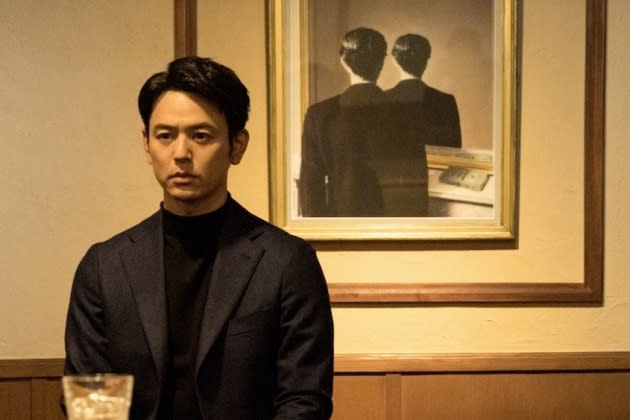‘A Man’ Review: Brooding Japanese Thriller Explores Lives Defined by Relationships with the Dead

Set in rural Japan, Kei Ishikawa’s brooding investigation tale “A Man” questions the meaning of identity in a society where discrimination persists, while offering a meditation on love and death, as well as the elusive boundary between truth and lies. Adapted from a novel by Keiichiro Hirano, the sensitive drama skillfully combines thriller aesthetics with subtle social analysis, while never straying from the wider metaphysical questions it explores.
The film begins as Rie (Sakura Ando), a divorced mother, remarries Daisuke (Masataka Kubota), a mysterious but kind-hearted new arrival to the town. They form a loving family of four — with Rie’s son from her previous marriage and the couple’s baby daughter — until Daisuke abruptly dies in a tragic accident. Rie is then stunned to find out that her late husband was not the man he said he was. She asks attorney Kido (Satoshi Tsumabuki) to lead an investigation into Daisuke’s unknown past, which results in some startling and painful conclusions.
More from Variety
The central characters’ lives are defined by their difficult and always-enduring relationship with the dead. Kido often faces casual racism, despite his social standing as a lawyer, because his ancestors were Koreans who moved to Japan. Daisuke could never fully escape his father’s life, even after his passing, given the devastating stigma of the way he died.
Kubota is especially convincing as the deeply wronged Daisuke, who bears his destiny of being doomed at birth while carrying unimaginable self-hatred. “When I wake up, I look in the mirror, my father’s there,” the character says in the film, trying to explain why he started boxing. “It feels like my father is inside me, and I want to rip away at myself and tear off my skin.”
At the heart of the mystery, the film focuses on the impossible choices faced by those who realize that society would never accept them for who they really are. What use does truth serve if it all but ensures social exclusion? When Daisuke meets Rie and falls in love with her, he lies about his entire existence. But this love, based on lies, is the only thing that shields him from years of self-harm and makes him want to live.
Delve even deeper into that theme, “A Man” asks: If one’s relationship with the dead can indeed last a lifetime, then what does it reveal about the love we shared with them? If that love didn’t end with their passing, how does it continue to define the lives of those who remain? And at what point does truth become irrelevant when we love someone — whether dead or alive?
Ishikawa offers a contemplative and moving exploration of such questions, particularly as seen through the eyes of Daisuke’s teenage stepson — including whether love can overcome what will forever remain an enigma about the departed, those who so profoundly shaped us but can now only respond in silence.
Best of Variety
Sign up for Variety’s Newsletter. For the latest news, follow us on Facebook, Twitter, and Instagram.

 Yahoo News
Yahoo News 